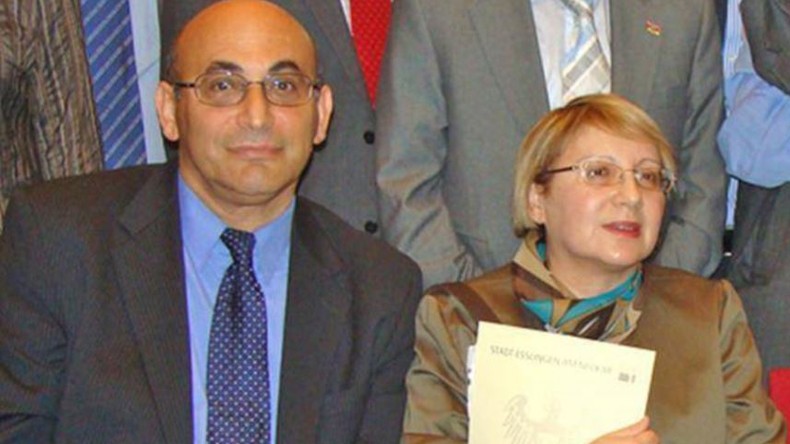
Azerbaijan authorities ban gravely ill political prisoners Leyla and Arif Yunus from leaving country for medical treatment
Azerbaijan banned prominent rights activists Leyla and Arif Yunus from leaving the country for medical treatment, Agence France-Presse (AFP) reports.
A court in Baku "has banned my clients from travelling abroad for medical treatment," lawyer Elchin Sadigov told AFP, adding that he would appeal against the "illegal" ruling to a higher court.
Leyla Yunus suffers from chronic hepatitis, arterial hypertension and diabetes. In addition, she has cholelithiasis, which causes torturing pains. Therefore, she needs an immediate surgery abroad, Sadigov told Turan news agency.
Arif Yunus also suffers from arterial hypertension, as well as from a severe pain in the neck. Experts reportedly find that the couple needs a highly qualified medical aid.
On 9 December 2015, Baku Court of Appeal ruled to release the well-known Azerbaijani rights defender Leyla Yunus from the courtroom and change her punishment to suspended sentence. On 12 November, Baku Court of Appeals made a decision to release her husband Arif Yunus, one of the best-known political prisoners in Azerbaijan, from jail. His arrest was changed with a signature for not leaving the country.
On 13 August 2015, Baku Court of Grave Crimes brought in a verdict against the Azerbaijani human rights defenders Leyla and Arif Yunus, sentencing them to 8.5 years and 7 years’ imprisonment respectively. Leyla Yunus was arrested in the yard of her house on 30 July 2014. She was charged with high treason, tax evasion, illegal entrepreneurship, forgery and large-scale fraud. Her husband, Arif Yunus, also faced charges of high treason and large-scale fraud.
In April 2015, the Council of Europe Commissioner for Human Rights, Nils Muižnieks, published his written observations submitted to the European Court of Human Rights on the case of Leyla and Arif Yunus. “The case of Leyla and Arif Yunus illustrates the pattern of repression that has emerged in Azerbaijan in recent years whereby human rights defenders are harassed through restrictive NGO legislation and selectively targeted with criminal prosecutions on charges that defy credibility,” the statement of the CoE Commisioner reads.
Newsfeed
Videos






























